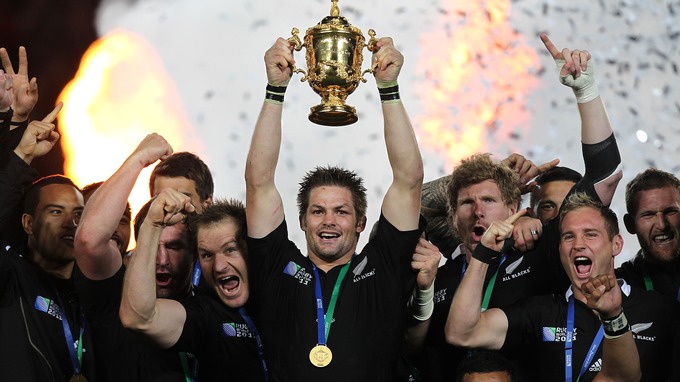Ever wondered why New Zealand is so good at rugby? Well, it’s actually due to eating a low-carb diet.
Ok, so not completely. But before winning the Rugby World Cup in 2015, the All Blacks underwent a dramatic nutritional regimen change, ditching a high-carbohydrate, low-fat diet in favour of a low-carb, healthy fat (LCHF) diet.
Credit for the change goes to New Zealand’s strength and condition coach, Dr Nicholas Gill.
Gill has long been a LCHF enthusiast. He adopted the diet two and half years ago, which was based on Paleo diet principles, so he could wean himself off eating more out of habit than hunger.
He showed his players “The Sugar Film”, an Australian film documenting how certain supposedly healthy foods can contain high amounts of sugar.
“This influenced the players quite a lot I think,” said Gill. “Most of the guys now understand that we need to get the sugar out.”
Back in 2007, the All Blacks ate a high-carbohydrate, low-fat diet to focus on short-term energy production. Saturated fats were virtually eliminated, while fruits, vegetables and lean protein were regularly consumed. New Zealand lost in the quarter-finals.
Since then a lot has changed in nutrition. A LCHF has shown to be beneficial for people with and without diabetes, helping with weight loss, blood sugar, blood pressure and energy levels.
Gill found that the diet reduced his cravings and increased his overall wellbeing, so he took the diet to his players.
They removed sugar from their diet, replaced lollies with nuts on the sidelines at training and started consuming six to seven tins of coconut oil (as a group) every week.
By the time last year’s Rugby World Cup commenced, New Zealand had been the top ranking rugby team in the world for four years. The team then trounced Australia 34-17 in the final. The change was impressive.
Following their World Cup triumph Gill told Professor Grant Schofield: “We’ve come a long way. I would say we are in a low-sugar environment. That’s a big change. I wouldn’t say we’ve made it all the way to high-fat, but we have healthy fat on hand when we need it.”
New Zealand has always been a giant of the rugby landscape, but Gill is under no illusion that adopting a low-carb diet has improved the team’s performance and health.
Remarkably, though, New Zealand became the first country earlier this year to warn against low-carb diets for weight loss. New Zealand’s Ministry of Health claimed “there is no evidence of the long-term benefits or safety of such diets”.
Well here is one study, and here’s another. There’s evidence everywhere. There’s also evidence that low-fat diet advice is among “the biggest mistakes in modern medical history”. But that’s for another blog.
Despite health organisations still lagging, low-carb is helping thousands of people worldwide – our Low Carb Program has enabled people to improve their diabetes control, lose weight and reduce their dependence on medication.
According to Gill, “Most professional sports teams are now at least low-sugar, lower to low-carb. That’s not always high-fat, but it’s healthy fat. Nutrition for sport is really changing fast.”
It’s a move that has even grabbed the attention of low-carb specialist Dr Tim Noakes.
As All Blacks nutritionist Kat Darry explained to the New Zealand Herald: “People are happy if food is good. It’s really about trying to find that balance between fuelling and having good healthy food, but having food that makes people feel happy and enjoy eating it.”
Darry adds that the All Blacks are now eating better than ever before. She said: “If they have energy and they’re still out there firing at 78 minutes that’s a really good indication that we’ve done something right during the week.”
Picture: ITV



